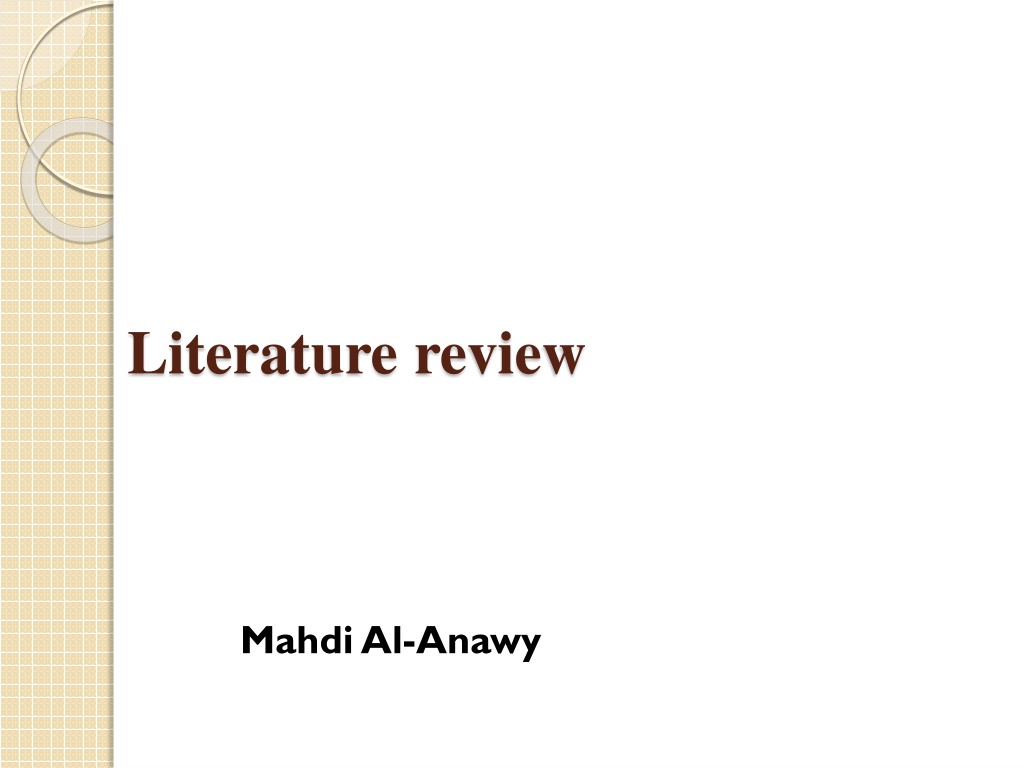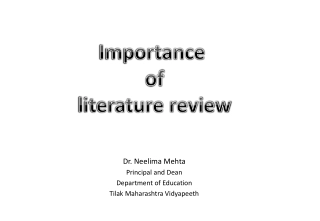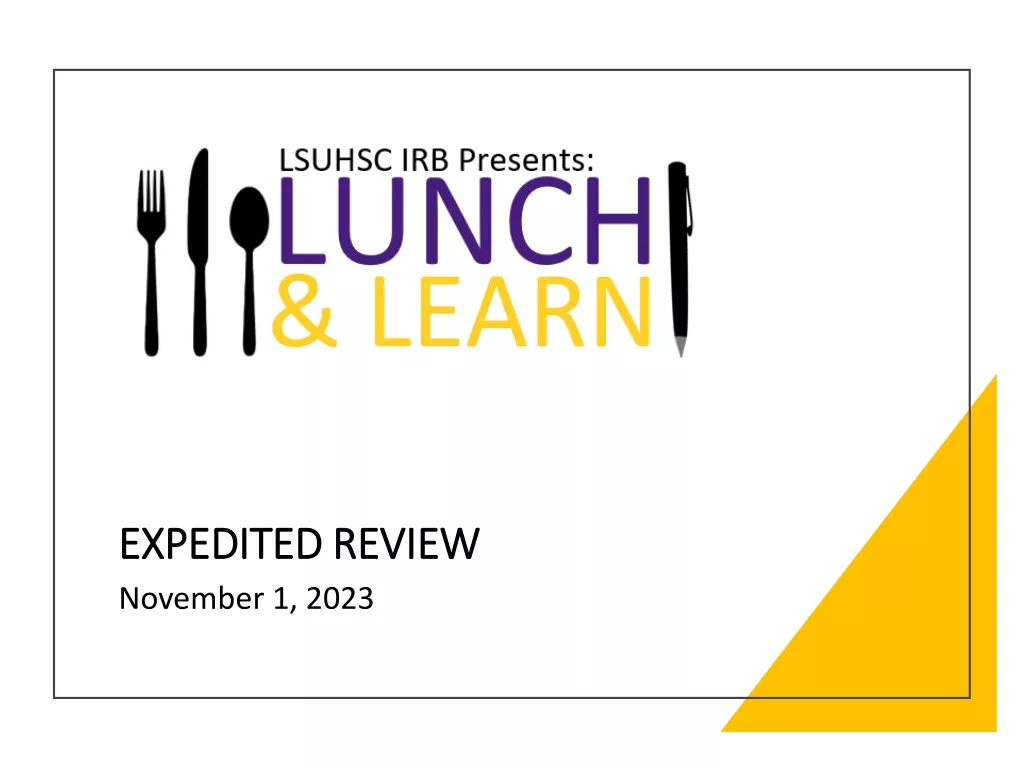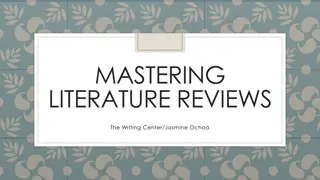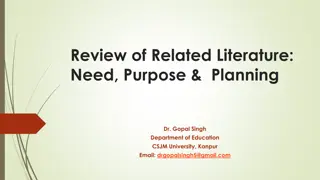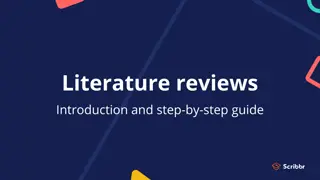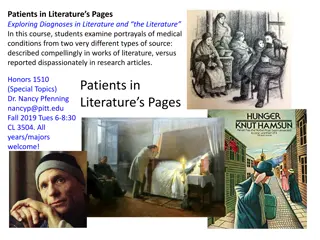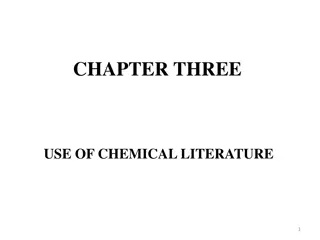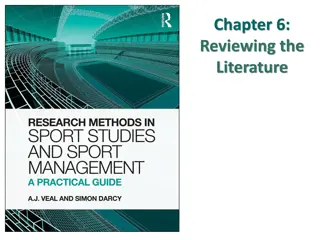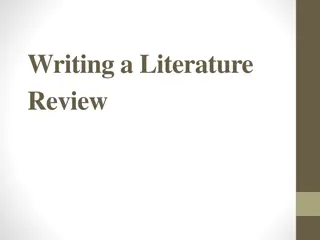Comprehensive Guide to Literature Review Process
A literature review is essential before conducting research to identify existing information, gaps in literature, major works, and relationships between studies and theories. Follow steps such as defining the topic, sourcing information, discussing findings, and drafting to write an effective literature review using various resources like books, journals, and databases.
Uploaded on Oct 03, 2024 | 0 Views
Download Presentation

Please find below an Image/Link to download the presentation.
The content on the website is provided AS IS for your information and personal use only. It may not be sold, licensed, or shared on other websites without obtaining consent from the author.If you encounter any issues during the download, it is possible that the publisher has removed the file from their server.
You are allowed to download the files provided on this website for personal or commercial use, subject to the condition that they are used lawfully. All files are the property of their respective owners.
The content on the website is provided AS IS for your information and personal use only. It may not be sold, licensed, or shared on other websites without obtaining consent from the author.
E N D
Presentation Transcript
Literature review Mahdi Al-Anawy
-Research almost never conduct a study in intellectual vacuum - The researcher reviews resources related to a particular topic before entering in the study.
What is a Literature Review A literature review is survey of research article books and other information resources related to your study.
Purposes of Literature Review to identify 1) information exists and other people working in your research field. 2) gaps in literature. 3) major research works, methodology & techniques. 4) Main ideas, conclusions and theories. 5) Relationship between previous studies and theories
How Write Literature Review 1) Define the research topic 2) Identify information sources. 3) Discuss finding and conclusion with others 4) Identify relationship between works and the literature
Literature Review Resources 1) Books. 2) Journals 3) Conference papers 4) Magazines and newspapers 5) Research reports 6) Theses 7) Electronic databases
Steps for Writing a Literature Review 1) Planning 2) Reading and research 3) Analyzing 4) Drafting 5) Revising
